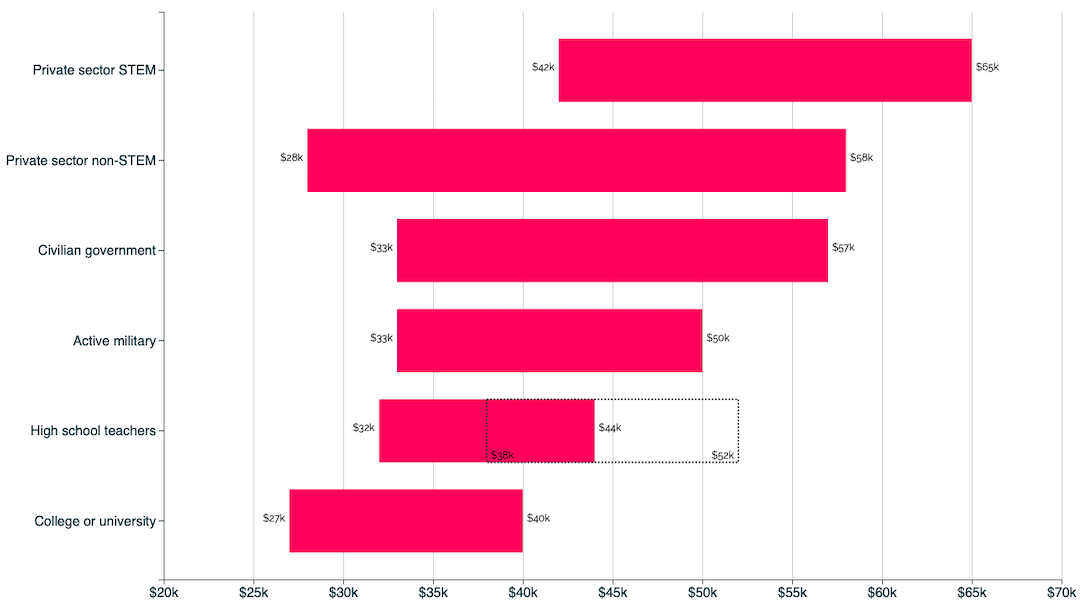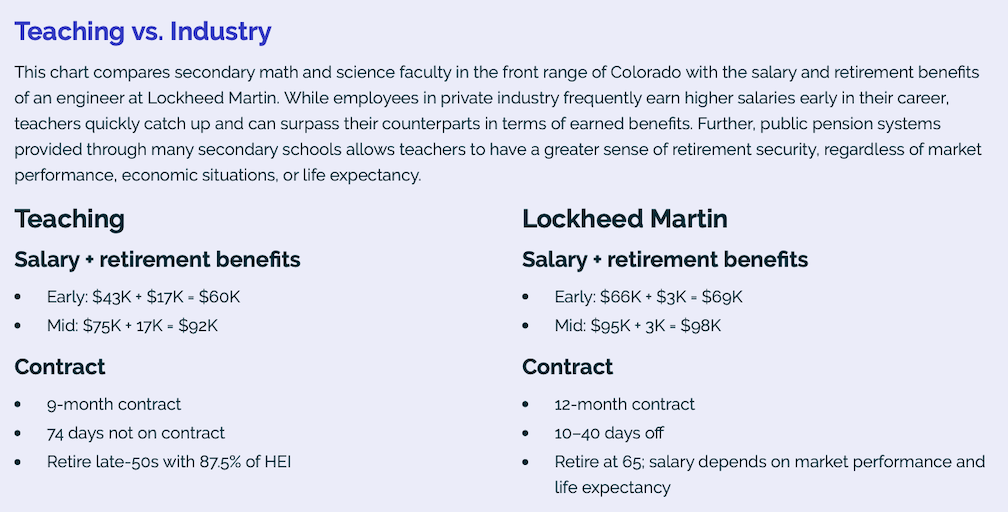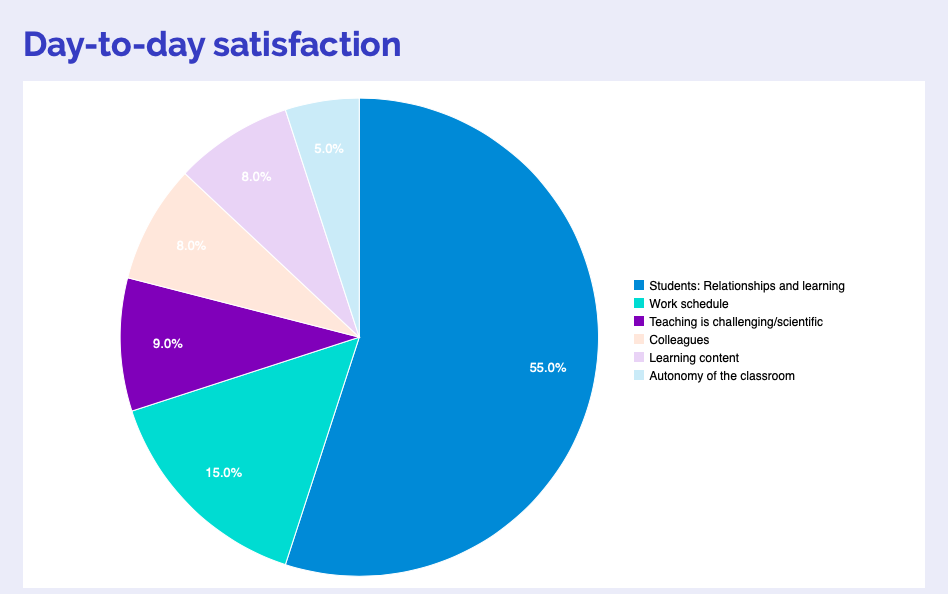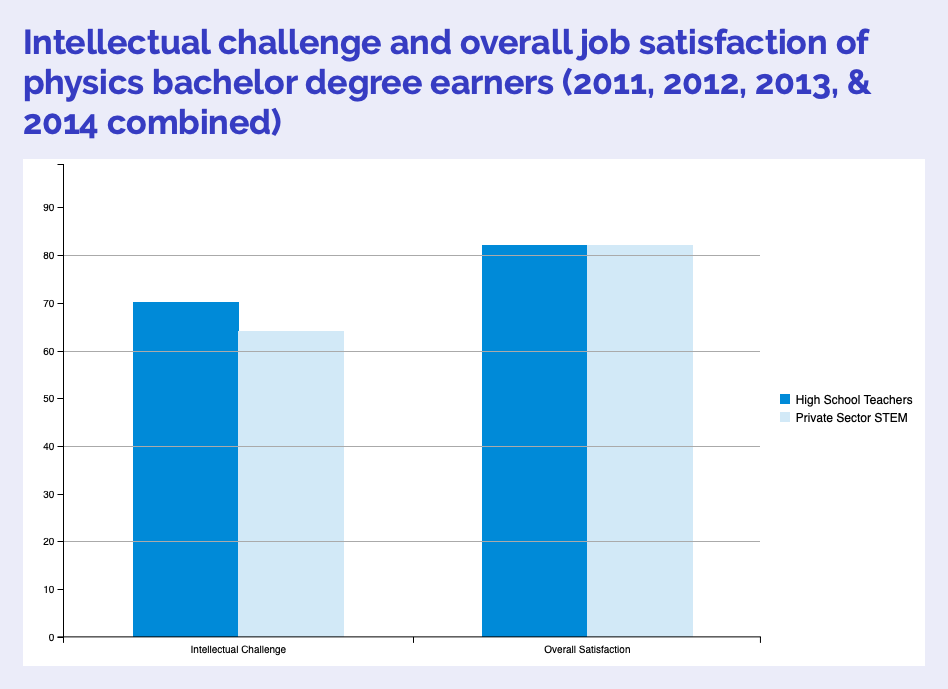Myth #1: Teaching pays less
Many people do not consider a career in teaching because they believe their earning potential is higher in other careers. They believe that starting salaries are low and that a degree in math or science education is not worth the investment.
To investigate this myth, let’s take a look at four profiles of actual secondary math and science teachers.
Comparing earners of a bachelor’s degree in physics across all sectors, high school science teaching is placed near the middle of the pack for starting salaries. Considering teachers are typically on a 9-month salary, a fairer comparison, which considers the amount of money a teacher could earn during the summer months or for other activities/employment, significantly increases the potential for earned income.

Myth #2: Teachers can never retire
While employees in private industry frequently earn higher salaries early in their career, teachers quickly catch up and can surpass their counterparts in terms of earned benefits. Further, public pension systems provided through many secondary schools allows teachers to have a greater sense of retirement security, regardless of market performance, economic situations, or life expectancy. This chart compares secondary math and science faculty in the front range of Colorado with the salary and retirement benefits of an engineer at Lockheed Martin.

Myth #3: Teachers are unhappy
The public perception of a teacher’s working conditions leads many to believe that teachers are dissatisfied with their choice of career. While there is great variability in a teacher’s work conditions and personal circumstances, the vast majority of teachers are satisfied with their career.
Contrary to popular belief, nearly 80% of grade 7-12 educators remain in teaching after 5 years. Math and science teachers are also 6x more likely to report that they make a difference in the lives of others, when compared to those in private industry.

